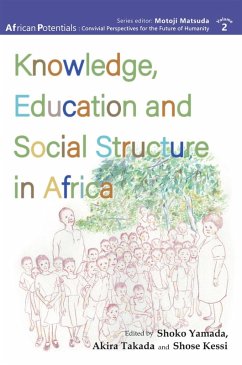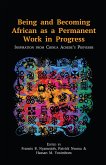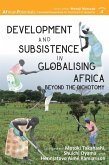In searching for the potential that lies in African societies, the chapters of this volume consider relationships between knowledge, education and social structure from multiple angles, from a macro-continental scale to national education systems, schools and local communities. The themes that cut across the chapters include education as a mode of transmitting values, the contrasting effects of school credentials and knowledge for use, politics and interactions among people surrounding a school and knowledge acquisition as a subjective process. The rich empirical analyses suggest that the subjective commitment of, and mutuality among, people will make the acquired knowledge a powerful 'tool for conviviality' to realize a stable life, even given the turmoil created by rapid institutional and environmental changes that confront African societies.
Dieser Download kann aus rechtlichen Gründen nur mit Rechnungsadresse in A, D ausgeliefert werden.









